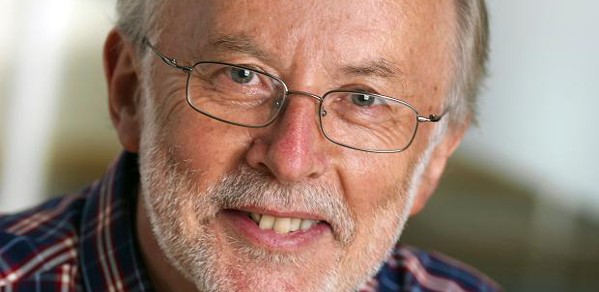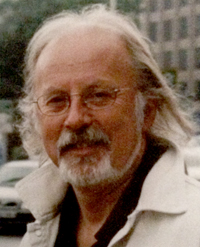
Professor Peter Raynor of the Department of Engineering’s Information Group shares a heartfelt remembrance of Professor Bill Fitzgerald.
William (Bill) J. Fitzgerald, Professor of Applied Statistics and Signal Processing in the Department of Engineering, played a central role in establishing Bayesian statistical theory as the bedrock of modern signal processing theory and practice. He achieved this not only through his personal seminal scientific contributions but by inspiring a long line of PhD students who have gone on to develop the concepts further in academic, industrial and financial organisations throughout the world.
Bill read physics at the University of Birmingham, followed by an MSc in the Physics of Solids and ultimately for a PhD in the same area. Following his PhD work he was appointed to a one-year research fellowship at Birmingham, which enabled him to continue with his research and also take on some undergraduate teaching.
For the next 10 years he worked at various research institutes and universities in France, Switzerland and Ireland. It was while working at the Institut Laue-Langevin in Grenoble that he met Marianne Klein, then a PhD student, who was to become his wife.
On his return to England in 1983 he accepted a post at Schlumberger Cambridge research laboratory. He brought his relentless enthusiasm to bear on understanding the roles of mineralogy, physics and chemistry in the development of anomalously high (and dangerous) pore pressures in the shales overlying many oil and gas reservoirs. His skills as a scientist were superb and Bill rapidly became highly respected among his scientific peers; his frequent seminars were very popular and always illuminating.
In 1985 he accepted the position of Principal Scientist at the Marconi Maritime Applied Research Laboratory in Cambridge. He was head of the Mathematical Modelling and Signal Processing Group and interacted with a number of University research groups, in particular the Signal Processing Group where he gave a number of seminars and worked on collaborative research projects. Whilst working on sonar beam-forming he began to formulate his ideas for applying Bayesian statistical theory to such problems and this became the focus of his research for the remainder of his career. In 1990 he was appointed to a lectureship in the Department of Engineering closely followed by election to a Fellowship at Christ’s College.
It was at Cambridge that he was able to develop his ideas on Bayesian statistical methodology applied to signal processing. His boundless enthusiasm and insight soon influenced his colleagues and students; the Signal Processing Laboratory began to develop an international reputation as a place where exciting things were happening in signal processing and in the underlying statistical theory and practice. Not content with simply spreading his ideas among the established scientific community he gave a number of well-received undergraduate courses which had a distinctly Bayesian flavour.
His research work was at the interface of engineering and mathematics, and he was making contributions in both areas with numerous invitations to address conferences in both signal processing and statistics. In 1998 he proposed and was principal organiser of a 6-month study workshop on Nonlinear and Nonstationary Signal Processing at the Newton Institute for Mathematical Sciences in Cambridge. This intensive workshop brought together engineers, physicists and mathematicians from all over the world. He had become a major figure in his subject with promotion to a Readership in 2000 and then a personal Professorship following in 2002.
His work included Bayesian inference applied to signal and data modelling in addition to nonlinear signal processing, image restoration and medical imaging, extreme value statistics, bio-informatics, data mining and data classification. His particular interest was in the applications of Sequential Monte Carlo (particle filtering) methods to signal processing and communication. In the last few weeks of his illness he was awarded the European Association for Signal Processing Technical Achievement Award for his contributions in applications of Bayesian theory in signal processing.
Although his work was based on complex mathematical ideas it always had relevance to the real world and his ideas engendered two business ventures – Featurespace and Darktrace – both of which promise to be major technology businesses. He was also a mentor to many others who were commercializing their research, including the Cronto team. We can expect the legacy of his Bayesian work to have significant impact as these businesses grow and his influence as a Bayesian champion to be reflected in many future systems which affect our lives.
No account of Bill’s life could be complete without reference to his deep love of many forms of music and his quite remarkable talent for learning a new instrument. Among the instruments that he could play were violin, classical guitar, flamenco guitar, ukulele, hurdy gurdy, flute, concertina and a number of different types of bagpipes including Galician and Aeolian pipes. His love of music was so important that at an early stage of his career he thought that he might like to be a rock guitarist; but science was truly his first love.
Above all Bill was an inspirational character who was much respected, much loved and who will be sorely missed by his family and his many friends, students and colleagues.
He is survived by his wife Marianne, sons Mathew, Tomas and Daniel and grandsons Riley and Kailen.
Professor William (Bill) J Fitzgerald, born 1 August 1948, died peacefully on 2 April 2014 in the company of his family.
This article originally appeared in the 2014 edition of Christ's College Magazine.

